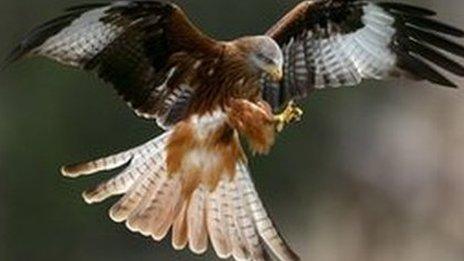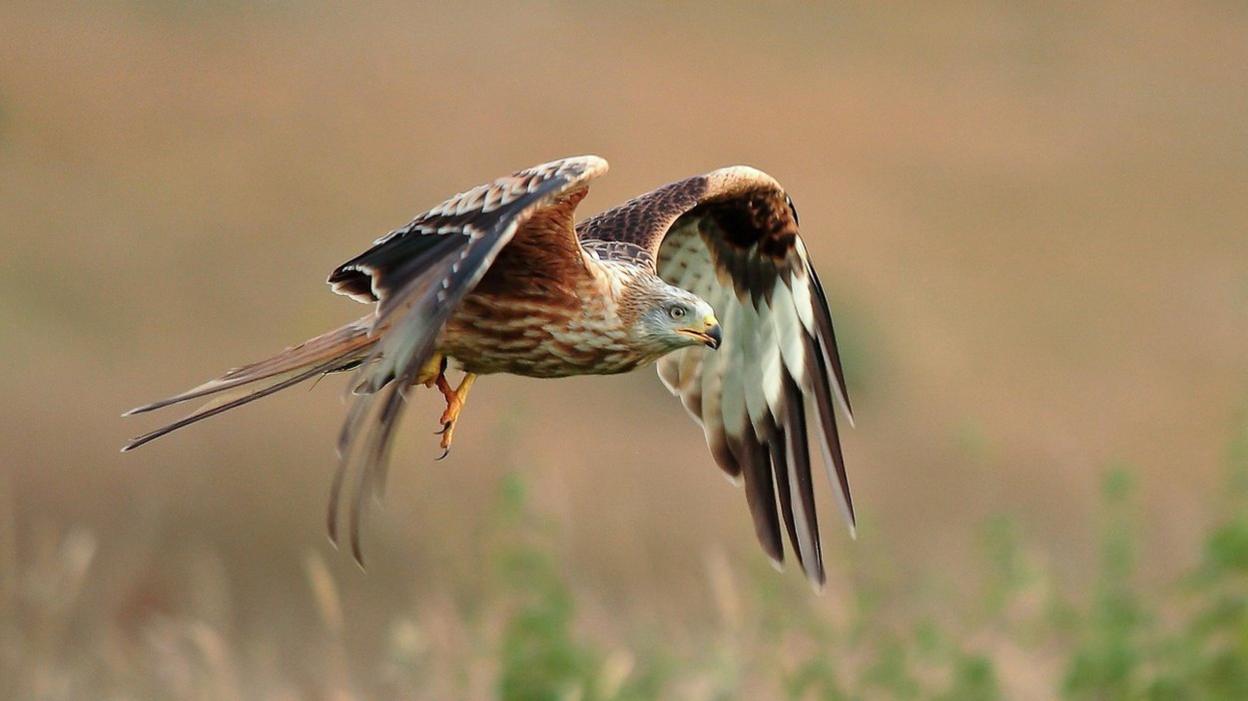New proposals to help Scottish SPCA stop wildlife crime
- Published
.jpg)
The proposals are being made after a number of rare raptors were found poisoned in Ross-shire
The Scottish SPCA could be given new powers to investigate wildlife crime, in an effort to improve conviction rates.
A public consultation on the issue has been launched by Scottish Environment Minister Paul Wheelhouse.
Offences such as raptor persecution, hare coursing and badger baiting are often difficult to investigate.
There may be few or no witnesses and evidence may be destroyed, either deliberately or by the elements.
Mr Wheelhouse said: "Preventing wildlife crime is at the top of our agenda but it can be difficult to detect and investigate, which can lead to difficulties in mounting prosecutions and convicting those responsible.
"The proposals to increase the powers for Scottish SPCA inspectors could provide an additional resource to Police Scotland in an area of crime which can be time consuming and difficult to investigate.
He added: "I have already strengthened our approach in tackling wildlife crime, but the outcome of this consultation will help us to understand public opinion on possible new ways forward."
Under the proposals, Scottish SPCA inspectors would be able to investigate crimes relating to wild birds, other protected animals, poaching, snaring and non-native species of animals.
They would also have the power to access land and premises, conduct searches and seize any evidence which is found.
The Scottish government has stressed the new proposals, external would only permit access to dwellings and locked buildings in cases where a warrant had been obtained.
The consultation also seeks views on proposals which would allow the Scottish SPCA to investigate situations where animals are not in distress, such as checking illegal traps where no animal is present or an animal is already dead.
The wildlife crime consultation continues until 1 September 2014.
- Published28 March 2014

- Published27 March 2014
